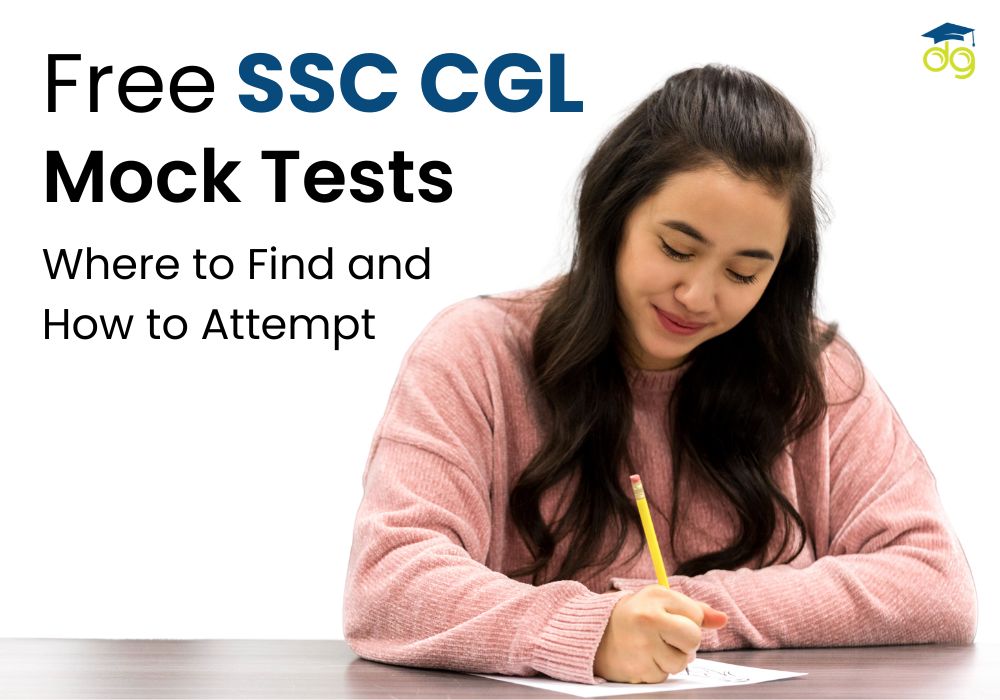How to Revise Effectively Before Exams: Proven Tips & Study Strategies
Practical study tips to plan revision, reduce stress and boost exam success
Preparing for exams is typically an extremely challenging time for any student. A long syllabus, a limited time, and increasing stress can make revising feel like a burden. But, with the right methods, anyone will be able to learn how to revise effectively before exams and step into the test hall confidently. Revision isn't about long hours of studying, it's focused planning, proper timing management and using test study methods that help in keeping information.
This blog is useful strategies, study tips for exams, and methods to reduce stress, while covering each important topic. From making a well-constructed study timetable to helping reduce stress about exams, these tips can help students to prepare for exams in a structured and stress free way.
Why Effective Revision Matters
Revision goes far beyond revising textbooks. This is an activity that improves memory, helps clarify the confusion, and exposes the weak points. People who study effectively will be able to remember the concepts more quickly, remain at ease during tests and provide precise, well-organized responses.
Revision habits that are well-organized can decrease stress on exams and boost confidence. It is easier to concentrate on the task at hand instead of being anxious.
Create a Smart Study Timetable
An organized study timetable can be the foundation for efficient revision. Instead of deciding what to do daily, a timetable offers direction and an equilibrium. It assists students in allocating the time needed to each subject, stay away from last minute rushing and remain on the right track.
Tips for Building a Study Timetable:
Step | Action | Purpose |
| 1 | All the subjects and topics | Finds out the total revision work load |
| 2 | Prioritize difficult chapters | It is important to ensure that tough concepts are revamped in the first place |
| 3 | Break sessions down into 45-60 mins | Maintains focus and avoids exhaustion |
| 4 | Include 5-10 minute breaks | It refreshes your mind and increases retention |
| 5 | Make sure to reserve evenings for revision | Perfect for flashcards or summaries. |
Students must begin with subjects that require more understanding in time in the morning when the brain is at its best. Quicker and lighter topics may be scheduled later on throughout the morning. The flexibility of the timetable allows the possibility of sudden shifts or unplanned tasks.
Use Effective Study Techniques
There are many ways to revise and not all work in the same way. Students who are smart adopt study techniques that stimulate the brain to improve its retention of information over time. The most efficient study methods are:
- Active Recall - Test yourself by responding to questions, without taking notes. This helps strengthen memory, and also reveals the weak spots.
- Spatial Repetition - Reviewing important concepts over time at a greater frequency. This includes revising an area after one day, followed by three days later, and then after one week.
- Practice Test Papers - Solving previous exam papers can help in understanding the exam patterns and it improves speed.
- Mind Maps - Create visual diagrams to connect ideas and make complex topics easier.
- Flashcards - Write key concepts and definitions, formulas, or even formulas on the cards to make quick revisions.
These learning methods have a higher rate of success than reading passively. They stimulate learners to be active and can help them retain important information during an examination.
Take Organized Study Notes
Excellent study notes provide a great instrument for fast and efficient revision. Notes that are clear and brief notes during their school year typically will save themselves time and energy before tests. The notes are well-organized and make it easier to study a huge course without tearing open textbooks.
Best Practices for Study Notes:
- Write in simple, short sentences that are easy to read.
- Utilize bullet points, headings, and numbering to easy navigation.
- Use highlight key words or formulas in order to quickly recognize them.
- Rewrite complicated paragraphs using your own words to increase understanding.
- Make summaries at the conclusion of each section for a final for reference.
A lot of students wonder, "What is the best way to take study notes?" The solution is to be focused on simplicity and clarity. Notes are meant to be an easy-to-use revision worksheet rather than a secondary textbook.
Master Time Management
Students have strategies to remain in control according to the study schedules.
Time Management Tips:
Strategy | Benefit |
| Set a timer for tracking sessions | Helps keep study time focused, and helps avoid distractions |
| Create daily objectives | It ensures that the process is steady and avoids the risk of overload |
| Examine weak subjects first. | Confidence is built and it helps avoid panic. |
| Limit social media use | It reduces the amount of time wasted and increases concentration |
| Finish the day by having the day's summary | Memory is strengthened and organized. information |
Through effective time management the students will be able to complete every subject at a consistent speed and not be stressed out prior to the test.
Reduce Exam Stress
With the right preparation exams can have a negative impact on your performance. Understanding how students can reduce exam stress is just as crucial as revising themselves. The ability to manage stress keeps your brain calm and increases focus.
Ways to Stay Calm:
- Pause regularly: Short walks or stretching exercises help to refresh your brain.
- Try Deep Breathing: A short amount of time spent breathing will help reduce stress.
- Eat healthy meals: The nutrients in food fuel the brain and keep it energized.
- Make sure you get enough sleep: At least 7-8 hours of rest improve memory retention.
- Be Positive: Repel negative thoughts with positive affirmations.
Exams assess understanding and not perfection. Maintaining a balance between studies and leisure helps to reduce stress levels.
Follow Practical Study Tips Before Exams
The date of the test is approaching and the students are often unsure, "What are the best study tips before exams?" The trick is to study smartly and not stress the brain.
Practical Tips for the Final Week:
- Focus on important formulas, definitions and summarizes instead of lengthy chapters.
- Use mock tests and previous year exams to increase the speed and accuracy.
- Find and repeat mistakes frequently so that you don't repeat them.
- Participate in group discussions to clear questions and clarify concepts for colleagues.
- Be sure to keep all stationery, admission cards and other materials in order prior to the time of use.
These test guidelines aid students in entering the testing hall with confidence and assurance.
Choose the Right Learning Methods
Students learn differently in various manners. Certain students prefer to read aloud while others learn better using visuals. Some prefer writing. Making the best choice of learning methods will make the process of revision quicker and also more efficient.
Common Learning Styles:
Learning Method | Example |
| Visual | Mind Maps, diagrams, and flowcharts |
| Auditory | Recording notes, or the lectures |
| Reading/Writing | Writing notes, summarizing or writing about topics |
| Kinesthetic | Making use of physical tools such as flashcards or teaching someone else |
students are able to decide on study techniques that complement their strengths, and can make revising fun.
FAQs
1. How can I revise effectively for exams?
Set a clearly defined timetable and use active recall and review it daily, taking brief breaks.
2. What are the best study tips before exams?
Make sure you are aware of the main concepts and practice previous papers beware of last-minute studying.
3. How do I manage time while revising?
Make sure you prioritize difficult subjects, set deadlines and adhere to your daily objectives.
4. What is the best way to take study notes?
Utilize Bullet points and highlight your keywords as well as rewrite your text using your own language.
5. How can students reduce exam stress?
Rest well, have breaks to eat well, stay positive, and sleep well.
Final Thoughts
By establishing a study timetable with tested study techniques and healthy lifestyles that allow students to cover their course, ease anxiety, and boost their performance.
The process of reviewing should never be an effort to beat time. It should instead be an ongoing method of reviewing, recalling as well as re-inforcing the knowledge. If you follow these strategies students can step into the examination hall with confidence, clarity and the confidence of a successful preparation.
If it's creating the perfect study schedules and identifying the most efficient study techniques and minimizing exam stress, SkoodosBridge is here to help you all the process.
Categories
Archives
- September 202512
- August 202522
- July 202524
- June 202524
- May 202526
- April 202530
- March 202523
- February 202513
- January 202523
- December 202429
- November 20246
- September 20245
- August 202422
- July 202415
- May 20249
- June 202424
Similar Posts

How to Revise Effectively Before Exams: Proven Tips & Study Strategies
by Skoodos Bridge

Best Memory Tricks for Learning Formulas & Facts – Study Tips 2025
by Skoodos Bridge

How to Make Effective Notes for Any Exam – Tips & Study Techniques
by Skoodos Bridge

Sectional Cut-Offs in Banking Exams: How to Clear Them in 2025
by Skoodos Bridge

Free SSC CGL Mock Tests 2025: Best Platforms and Expert Strategies
by Skoodos Bridge

How Many Hours to Study for UPSC? Realistic Guide for Aspirants
by Skoodos Bridge

Toppers’ Advice: How to Score 99+ Percentile in CAT Exam 2025
by Skoodos Bridge


Cover NCERTs for UPSC in 60 Days: A Strategic Study Plan
by Skoodos Bridge


Leave a Comment